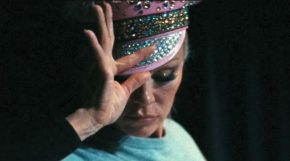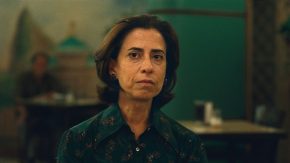Apologies in advance to anyone who thinks the title is too clickbait, but it just cannot be less dramatic. Martin Grubinger, the brilliant “multi-instrumentalist”, recently announced that he will end his musical career at the end of this season. Why would a global star, who is also still as young as 40 years, make such a decision? I investigated this, mainly on the basis of the German- and English-speaking press, and also what you can expect if you rush to buy tickets for Grubinger’s Budapest concert with the Luxembourg Philharmonics.
Martin Grubinger grew up in Thalgau, near Salzburg, the child of a percussionist-teacher father whose students he often heard practising in his home. He recalls having learned music the way other people learn to talk. He attended the Brucker Conservatory in Linz from the age of twelve and the Mozarteum in Salzburg (where his father also taught) from the age of seventeen, but soon it became clear how much his talent extended beyond the institutional framework. He left the Linz conservatory, for example, without a diploma, and missed a lot of lessons – but not the music! Nothing proves this more than the many competitions he has won, or the fact that he is now teaching where he used to study: since 2018 he has been a professor at the Mozarteum.
It is rumoured that he will continue teaching and only stop playing at concerts. But again, why? If you watch Grubinger play the drums, you can see the physical and mental effort he puts in. Before he appeared, percussionists were usually left in the background and not given very difficult tasks. Then Grubinger burst in, and now pieces are written specifically for him, some of them so difficult that no one else can play them. Throughout his career, he experimented with drums, listening to church music from African churches, observing the altered state of consciousness, the spiritual depth coming through the drums. He himself embraced and learned about these various instruments, and then translated everything into the Austrian Catholic tradition. Grubinger’s percussion and the Gregorian chant of the Benedictine monks, as bizarre a pairing as it seems, sounds breathtakingly good!
I do believe that the percussionist is the more flexible, maybe more creative, perhaps often more curious breed of human. Percussionists always have to be open-minded because their range of instruments is ever-expanding: a new instrument from Afghanistan, a new gong from Thailand, a new frame drum from Syria, a new marimba from America or Mexico, the newest drum from the mountains of South Tyrol. (Martin Grubinger)
Moreover, not only is the drumming itself an effort, but Grubinger seems to have been pushing the boundaries all his life. He once had a plan to give six concerts in a single evening in the great hall of the Musikverein in Vienna (where the New Year’s concerts are held), which means four and a half hours of playing and six hundred thousand musical notes. What’s more, since Grubinger doesn’t like the music stand (“They get between me and the audience. Music stands block off my power.”), he learned the show by heart. On 17 November 2006, he took to the stage with more than 200 percussion instruments and the Vienna Radio Orchestra and played the entire performance. He himself went into a trance, seeing himself from the outside and knowing instinctively where to reach. Sweat was dropping from his face, the veins in his neck were bulging, he dipped his burning, trembling hands in icy water during the breaks – but he did it.
“I’d like to give the drums a new identity,” he said as a student. “You’ll kill yourself,’ his professor replied. Indeed, Grubinger’s drumming can best be compared to the guitar playing of Jimi Hendrix, one of the saddest examples of an artist burning himself in the fire he sets with his art. Grubinger is also famous for practising until he collapses in the rehearsal room, and when he wakes up again, he sits back to the drums. In fact, it’s a lifestyle he’d better not continue in this form. He has other plans, which he put into words during the pandemic: spending time with his son, reading War and Peace, learning Italian…
So it is with a heavy heart that we let go of this musical genius and give him one last round of applause in Budapest, where he will be on stage with the Luxembourg Philharmonic Orchestra and their conductor Gustavo Gimeno.



























Comments